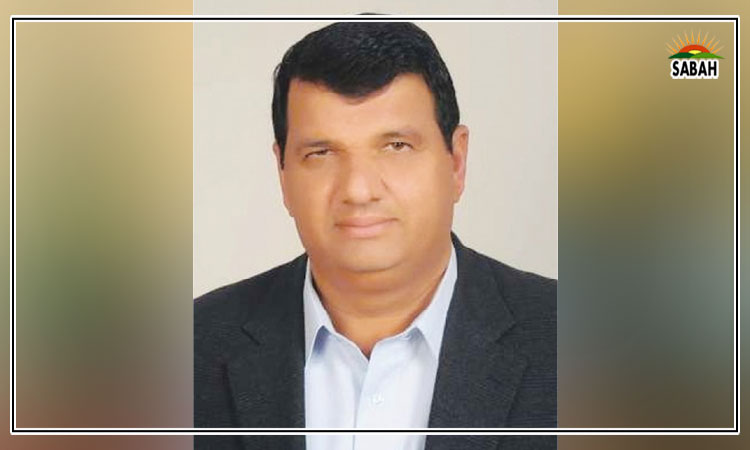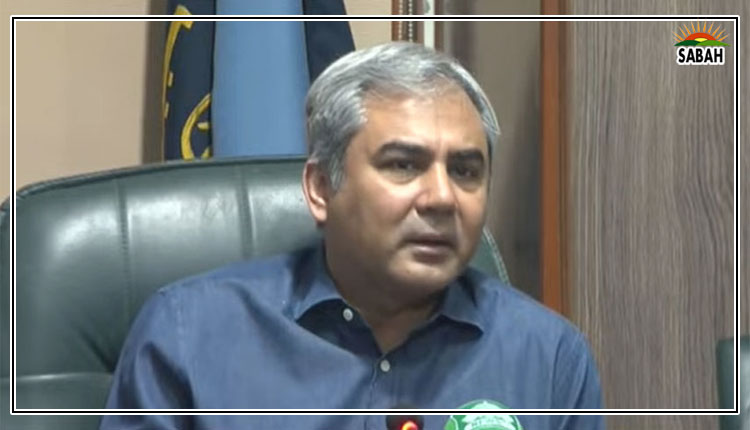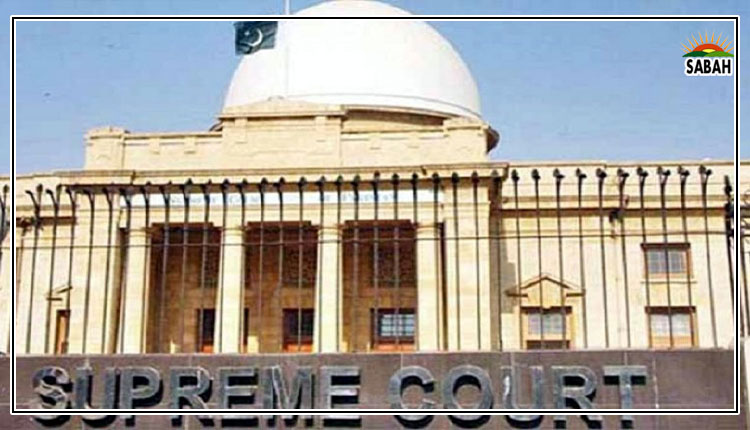Apex Court orders barricade removal from pavements outside all govt, private offices in Karachi within three days
KARACHI, April 25 (SABAH): The Supreme Court of Pakistan on Thursday ordered private entities and government authorities, provincial and federal, to remove all encroachments made on pavements for security purposes within three days.
A three-judge bench of the apex court, headed by Chief Justice of Pakistan (CJP) Justice Qazi Faez Isa alongside Justices Jamal Khan Mandokhail and Naeem Akhtar Afghan was hearing a 2010 petition filed by former Karachi mayor Naimatullah Khan seeking the SC’s intervention to get amenity plots vacated from “land mafia and political parties” in the city, as well as around 145 other related cases regarding encroachments on public spaces, illegal constructions and conversion of residential properties into commercial ones.
After the proceedings of the Gujjar, Orangi and Mehmoodabad nullah cases concluded for the day, Justice Isa remarked that the government had greater responsibility to answer for any encroachments by it.
He said pavements outside the Governor House, Chief Minister House, Naval Headquarters, Rangers’ Headquarters and the SC were all encroached on by the government, adding that he had gotten all such constructions removed from outside the apex court’s Karachi Registry.
“Do you have a right to close off the pavements?” CJP questioned an additional advocate general of Sindh to which the latter replied: “No, but these [encroachments] are made to ensure security [of these offices and buildings] from threats of bombs.”
Justice Isa next asked, “So the public can be attacked but you should remain safe. What kind of law is this?”
The chief justice subsequently directed that all pavements outside provincial and federal government authority offices and private entities should be cleared or the court would issue contempt notices to those who blocked them.
He said that pavements were meant for pedestrians and if the authorities wanted to barricade access to their buildings then they needed to do it inside their premises.
“They do it outside because how can they let anything happen to their lawns,” CJP Isa remarked.
He emphasised that barricading around the world was done inside buildings while “pavements are for the public”. “If law enforcement agencies are so scared then they should leave these places and make their offices in remote areas,” CJP Isa added.
The Sindh advocate general assured the court that the government would remove all encroachments from pavements.
Addressing the advocate general and the federation, CJP Isa said, “It is unfortunate that encroachments are made by those who are paid by the public exchequer. You are here to serve the people, not protect yourself.”
Dictating the order of the day, Justice Isa, directed all land-owning agencies to remove all encroachments from pavements within three days.
After three days, he said encroachments should be demolished by the relevant authorities, adding that the cost of that exercise would be paid by the most senior officer in the building at fault.
Karachi Metropolitan Corporation counsel Umar Lakhani assured the court that all encroachments on pavements alongside the 106 roads under the body’s jurisdiction would be cleared.
Responding to the argument that barricades are raised due to security concerns, the top judge said: “The public continues to be attacked [but] you get to remain safe? What kind of law is this?”
“If you feel too scared, go and sit in a remote area,” he added while directing the authorities to abstain from blocking the roads under the pretext of security.
“Why don’t you remove encroachments in front of [Sindh] Rangers headquarters?” the CJP said while questioning the law under which Jinnah Court premises were handed over to the Rangers.
“Place the [security] containers inside the Governor House. Why do you put it outside?” the top judge said while stressing that encroachments should be removed even if they are within the premises of the SC itself. The case was then adjourned till tomorrow (Friday).
Furthermore, the SC also directed the authorities to sell the land and compensate the affectees of Nasla Tower — the residential complex razed on the apex court’s verdict.
The top court headed by then CJP Gulzar Ahmed had ordered the demolition of the 15-storey residential complex, located at the junction of Shahrae Faisal and Shahrae Quadeen, in June 2021 because the structure was constructed illegally.
Back then, the court had directed the builders to refund the affectees of the residential and commercial units within three months.
Subsequently the apex court then also rejected a petition for review of its decision of the building’s demolition.
During the hearing on Thursday, the counsel representing the Nasla Tower affectees apprised the court that the builder of the residential complex had in fact died leaving his clients in limbo.
The court then directed the affectees to approach the official assignee with the relevant ownership documents.
Directing the authorities to submit a report on the market value of Nasla Tower land, the court further ordered the publication of an advertisement for the sale of the land followed by the submission of a report of the auction bid as well
The court has also sought a detailed report of the plot adjacent to the now-demolished Nasla Tower along with the details of the builder’s heirs.
Issuing notice to the Sindhi Muslim Cooperative Society, the court then adjourned the hearing and gave one month time for the relevant authorities to submit their response in the said case.












